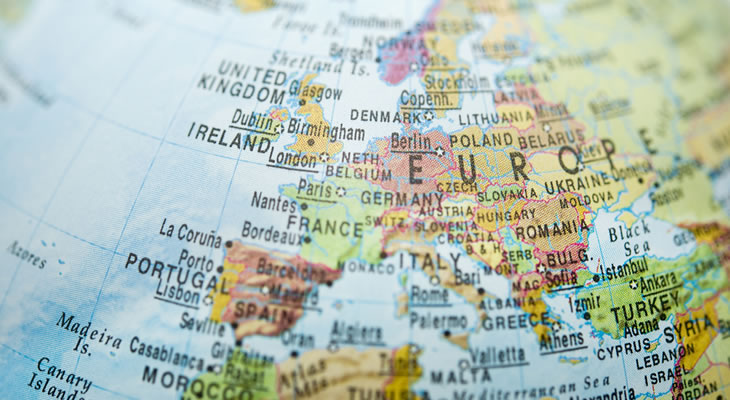EUR/GBP Exchange Rate Turbulence Possible if SPD Rejects Coalition Deal
The Euro to Pound (EUR/GBP) exchange rate has risen today, although the Euro remains vulnerable to a potential crash in the coming days.
With little Eurozone data to refer to, traders have instead been watching the progress of coalition discussions between the CDU/CSU and the SPD Party.
Party leaders have been repeatedly trying to reach some form of agreement, given that no one party secured an overall majority in the 2017 federal election.
The real test will come on 21st January, when SPD delegates vote on the continuation of discussions.
Although a ‘yes’ vote might seem assured as the SPD would ultimately gain political power, there are elements of the party that don’t approve of a union.
These factions are concerned that SPD policies could be watered down by a union, although the SPD and CDU/CSU have acted as a coalition twice before.
Not everyone in the SPD has been so rigid in their convictions; Herford Mayor and SPD official Tim Kahler has reflected that;
‘Of course there’s more we as Social Democrats want to accomplish.
But we also need to consider our election result – and as a party that won 20% in the federal election, we also need to make compromises’.
Warning against fading confidence in the SPD after another grand coalition, party member Ulrich Piechota has stated;
‘If we go into another grand coalition, what happens in four years?
Will we stand here then with 15%, 16%, 17%, [or] 18%? With the same situation, we’ll keep disappearing’.
If the vote on Sunday sees SPD members reject further coalition talks, the Euro could plummet in value against the Pound.
With no coalition deal, Germany could face another election or a minority CDU/CSU government with limited powers.
Pound to Euro Exchange Rate could Dip on Falling UK Wage Growth
Asides from any Brexit-related influences, the Pound could see near-term movement from UK earnings data out on 24th January.
The November figures for wage growth will be announced, which have the potential to inspire Pound to Euro volatility.
The main focus will be on wage growth compared to inflation, which affects the ongoing UK wage squeeze and whether real incomes are growing or shrinking.
Current forecasts are for no change in the pace of earnings, but if they decline unexpectedly, the Pound could fall sharply against the Euro.
UK inflation rates recently slowed, but slowing wage growth would remove the benefit of lower prices and maintain the wage squeeze for another month.
GBP/EUR Rate Rise Possible on UK GDP Stats
While Sterling remains vulnerable to losses from the upcoming wage data, it also has a chance at rising against the Euro on 26th January when GDP estimates come out.
Over the fourth quarter, estimates are for growth in quarter-on-quarter and year-on-year GDP.
Such results would set the UK up well for 2018, assuming that future GDP readings also show economic expansion.


Comments are closed.